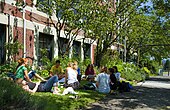
Naturopathy, or naturopathic medicine, is a form of alternative medicine. A wide array of practices branded as "natural", "non-invasive", or promoting "self-healing" are employed by its practitioners, who are known as naturopaths. Difficult to generalize, these treatments range from the pseudoscientific and thoroughly discredited, like homeopathy, to the widely accepted, like certain forms of psychotherapy. The ideology and methods of naturopathy are based on vitalism and folk medicine rather than evidence-based medicine, although practitioners may use techniques supported by evidence. The ethics of naturopathy have been called into question by medical professionals and its practice has been characterized as quackery.
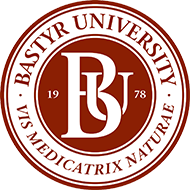
Bastyr University is a private alternative medicine university with campuses in Kenmore, Washington, and San Diego, California. Programs include naturopathy, acupuncture, Traditional Asian medicine, nutrition, herbal medicine, ayurvedic medicine, psychology, and midwifery.
A medical degree is a professional degree admitted to those who have passed coursework in the fields of medicine and/or surgery from an accredited medical school. Obtaining a degree in medicine allows for the recipient to continue on into specialty training with the end goal of securing a license to practice within their respective jurisdiction. Medical graduates may also pursue non-clinical careers including those in basic research and positions within the healthcare industry. A worldwide study conducted in 2011 indicated on average: 64 university exams, 130 series exams, and 174 assignments are completed over the course of 5.5 years. As a baseline, students need greater than an 85% in prerequisite courses to enrol for the aptitude test in these degree programs.
Oregon Health & Science University (OHSU) is a public research university focusing primarily on health sciences with a main campus, including two hospitals, in Portland, Oregon. The institution was founded in 1887 as the University of Oregon Medical Department and later became the University of Oregon Medical School. In 1974, the campus became an independent, self-governed institution called the University of Oregon Health Sciences Center, combining state dentistry, medicine, nursing, and public health programs into a single center. It was renamed Oregon Health Sciences University in 1981 and took its current name in 2001, as part of a merger with the Oregon Graduate Institute (OGI), in Hillsboro. The university has several partnership programs including a joint PharmD Pharmacy program with Oregon State University in Corvallis.

Western University of Health Sciences (WesternU) is a private medical university in Pomona, California. With an enrollment of 3,724 students (2022–23), WesternU offers more than twenty academic programs in multiple colleges. It also operates an additional campus in Lebanon, Oregon.
Southern California University of Health Sciences (SCU) is a private university located in Whittier, California and specializing in the health sciences. SCUHS programs include acupuncture and traditional Chinese medicine (TCM), which are regarded by the mainstream medicine and science communities as pseudoscience. Academics are organized into four colleges and schools: the Los Angeles College of Chiropractic, the College of Eastern Medicine, and the College of Science & Integrative Health. The university is accredited by the WASC Senior College and University Commission.

Massachusetts College of Pharmacy and Health Sciences (MCPHS) is a private university focused on health- and life-sciences education, with campuses in Boston, Massachusetts, Worcester, Massachusetts, and Manchester, New Hampshire, as well as online programs. The university provides traditional and accelerated programs of study focused on professional education in pharmacy and the health sciences.

Northwestern Health Sciences University (NWHSU) is a private university focused on alternative health care and located in Bloomington, Minnesota. The university has educational programs in chiropractic, Traditional Chinese medicine, acupuncture, therapeutic massage, Allied health professions, and human biology. The university was founded in 1941 by John B. Wolfe, DC.
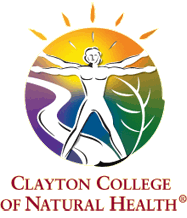
The Clayton College of Natural Health was a non-accredited American distance-learning college based in Birmingham, Alabama, offering classes in various forms of alternative medicine. The school was founded in 1980 by Lloyd Clayton Jr. as the American College of Holistic Nutrition. According to its website, the school at one point had more than 25,000 students and graduates. The school and some of its more notable graduates have been the subject of controversy.

Oregon College of Oriental Medicine (OCOM) was a private university in Portland, Oregon focused on graduate degrees in acupuncture and Oriental medicine. OCOM's programs were accredited by the Accreditation Commission for Acupuncture and Herbal Medicine and authorized by the Oregon Student Assistance Commission's Office of Degree Authorization to award Master of Acupuncture and Oriental Medicine and Doctor of Acupuncture and Oriental Medicine degrees. The institution's trustees voted in spring 2024 to close the institution because of declining enrollments and financial challenges.

The Naturopathic Physicians Licensing Examinations (NPLEX) are professional licensing exams administered by the North American Board of Naturopathic Examiners (NABNE). Graduates of naturopathic programs accredited by the Council on Naturopathic Medical Education (CNME) are required to pass the exams before being permitted to practice naturopathic medicine in a U.S. state or Canadian province that licenses naturopaths.

The Canadian College of Naturopathic Medicine (CCNM) is a private, not-for-profit institution with two campus locations: the CCNM -Toronto Campus in Toronto, Ontario, Canada, and the CCNM -Boucher Campus in New Westminster, British Columbia, Canada.

The American College of Healthcare Sciences (ACHS) is a private for-profit online college headquartered in Portland, Oregon, that specializes in holistic health education. It was founded in 1978.
The Institute of Clinical Acupuncture and Oriental Medicine(ICAOM), located in Honolulu, Hawaii, United States, offers master's and postgraduate doctoral degrees in acupuncture and Oriental medicine. ICAOM's programs are accredited by the Accreditation Commission for Acupuncture and Herbal Medicine, and approved by the Hawaii State Board of Acupuncture.
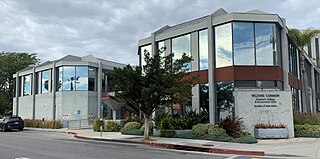
Emperor's College is a private for-profit graduate school of traditional Asian medicine in Culver City, California. Founded in 1983, it offers master's and doctoral programs with accreditation in acupuncture and Asian medicine.
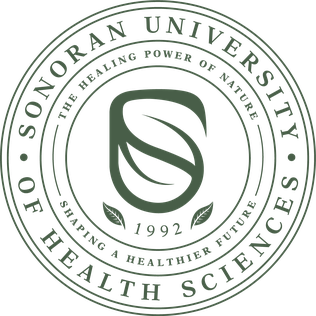
Sonoran University of Health Sciences, formerly Southwest College of Naturopathic Medicine, is a private alternative medicine school in Tempe, Arizona. Founded in 1993, Sonoran specializes in naturopathy, an amalgamation of health modalities that are considered pseudoscience, quackery, and fake by the scientific and medical communities.

Australasian College of Natural Therapies (ACNT) is an Australian private natural health college that offers both tertiary education and vocational education and training.

Southern School of Natural Therapies (SSNT) is the longest-standing institution in Natural Therapies that offers both tertiary education and vocational education and training. The School became a part of education provider Torrens University Australia in 2014, itself part of the Strategic Education, Inc. group.

Texas Health and Science University (THSU) is a private for-profit university with its main campus in Austin, Texas and a second campus in San Antonio. It offers graduate and doctoral degrees in acupuncture, and traditional Chinese medicine with a Chinese herbal medicine specialty.

